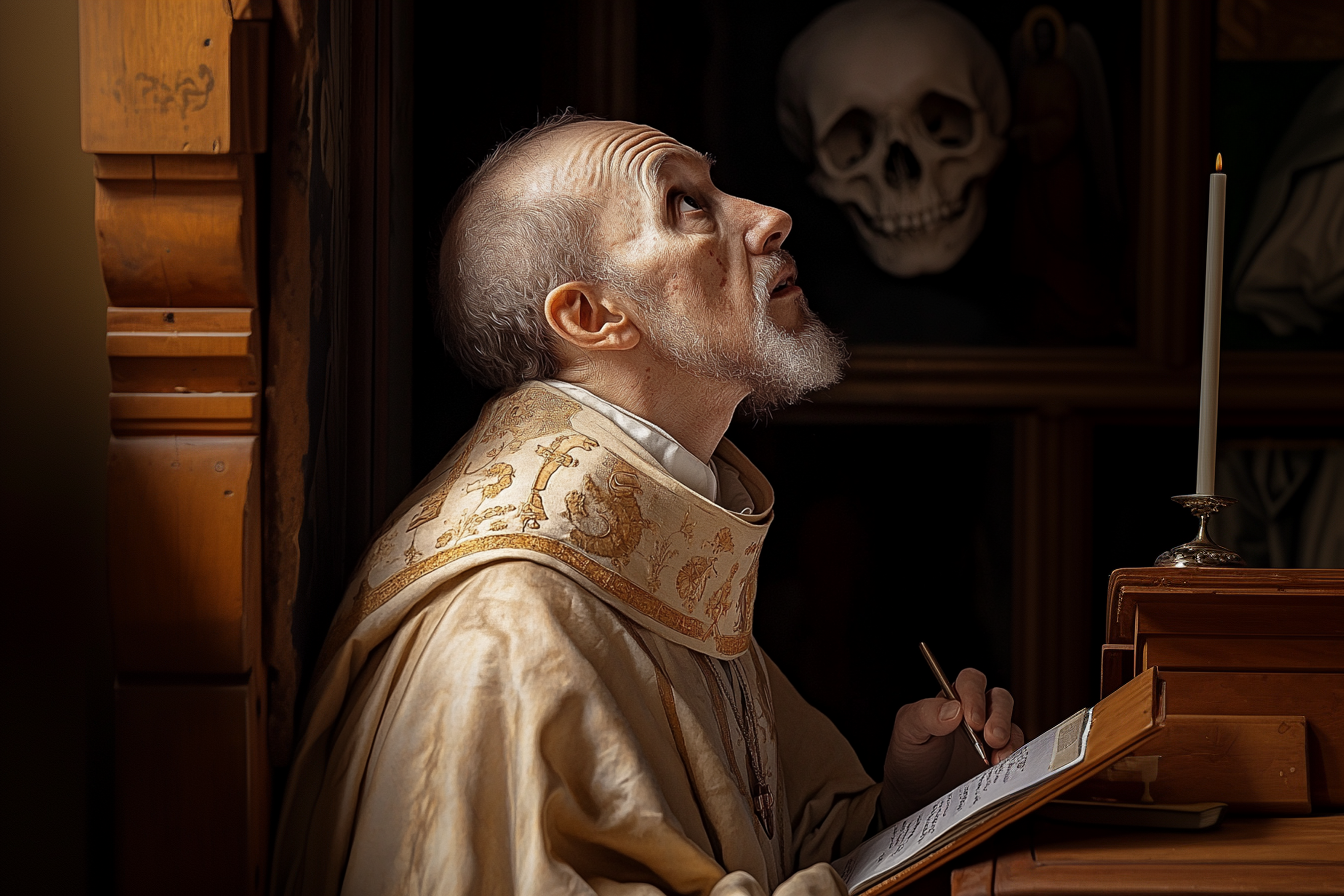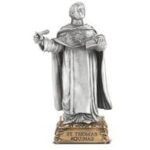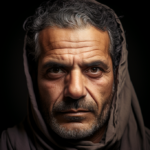
St. Bernard of Clairvaux
St. Bernard of Clairvaux
When they lived: St. Bernard of Clairvaux lived from 1090 to 1153.
Where they lived: St. Bernard of Clairvaux lived in the Abbey of Clairvaux, located in the Champagne region of France.
Notable world events during their life:
- The First Crusade (1096-1099): St. Bernard played a significant role in inspiring and recruiting crusaders for the First Crusade.
- The Investiture Controversy (1075-1122): St. Bernard supported the papal authority in the conflict between the papacy and secular rulers over the appointment of church officials.
- The founding of Universities: Universities were beginning to emerge in Europe during St. Bernard’s life.
- The Renaissance of the 12th Century: St. Bernard’s writings and teachings contributed to this period of cultural and intellectual revival.
- The Growth of Cistercian Order: St. Bernard was a pivotal figure in the Cistercian monastic movement.
Their patronage:
- Beekeepers: St. Bernard is often depicted with a beehive, symbolizing his sweet and eloquent words.
- Candlemakers: St. Bernard’s patronage extends to candlemakers, who craft items of spiritual significance.
- Monastics and Cistercian Orders: St. Bernard is the patron of monastic life and the Cistercian order.
- Lecturers and Students: St. Bernard’s influence on the intellectual climate makes him a guiding figure for educators and students.
- Innkeepers: St. Bernard’s compassion and care for travelers are associated with his patronage of innkeepers.
Early Life
Bernard was born in the year 1090 on the outskirts of Dijon in Burgundy to a family of the highest nobility. His parents were Tescelinde Fontaine, Lord of Fontaine-Les-Dijon, and Alethe De Montbard. They raised him well so that he would follow in their footsteps and be a man of virtue. Bernard’s mother played a major role in molding his character. When his mother died in 1107, that was the turning point for Bernard, who started his long road to complete conversion to Christianity.
After seeking the guidance of Stephen Harding, the abbot of Citeaux, Bernard made up his mind to join the small community called the Cistercians. The order had been established in 1098 with the mission to restore Benedictine monasticism to a more primitive and austere state. Bernard expressed great enthusiasm for the order. He managed to convince his brothers and 25 other people to join him at Citeaux in the year 1112.
Bernard was a radical Christian who fasted and deprived himself of sleep. His physical health suffered as he developed different illnesses such as anemia, migraines, gastritis, and hypertension. He endured all these challenges and focused on his spiritual life with a dedication that saw him appointed abbot of the Cistercian monastery at Clairvaux.
As a leader, his strict standards were upheld amidst complaints from monks who felt that he was too radical. Despite these complaints, the monastery prospered under his leadership. By the year 1118, Clairvaux had established its first daughter house, which increased to 100 monasteries in Bernard’s lifetime.
Influence on the World
Bernard was instrumental in re-emphasizing the importance of Lectio Divina and contemplation for monks. Bernard had observed that when Lectio Divina was neglected, monasticism suffered. He stated that people who are their own spiritual directors have fools for disciples.
As Bernard’s influence and responsibilities increased, he had cordial relationships with other orders. These orders included the Carthusians and the Premonstratensians. He loved to be close to the seat of power and was an advisor to five popes.
Bernard wrote the Knights Templar for men who took monastic vows and swore to defend the Holy Land militarily. However, Peter Abelard, a Paris theologian, criticized the way Bernard preached the gospel of Christ. This did not sit well with Bernard, who wrote a letter to the Pope complaining about the way Abelard was criticizing him. Pope Innocent III, an ally of Bernard, condemned Abelard’s teaching and forced him to retire to a monastery. The pope owed his position to Bernard’s public support.
The political influence of Bernard was further enhanced when his former pupil was elected to the position of Pope Eugenius III. Bernard described the pope as a vicar of Christ who presided over all people. The influence he had in Eugenius III’s reign resulted in people saying that Bernard was pope, not Eugenius.
Eugenius enlisted Bernard as the chief promoter of the Second Crusade. Bernard traveled all over Europe, drumming up support for the crusade. He encouraged people to put Jesus Christ before anything else. However, the crusade was a disaster because effective leadership was lacking. This negatively affected Bernard’s reputation. He sent an apology to the Pope, and it is inserted in the second part of his “Book of Considerations”. The excuse he gives is that the sins of the Crusaders were the cause of their misfortunes and failures.
Date of Death
Bernard died on August 20, 1153, aged 63, after 40 years of monastic life. He was buried at Clairvaux Abbey. His Feast Day is celebrated on August 20.
Canonization and Patronage
Bernard was canonized on January 18, 1174, in Rome by Pope Alexander III. In 1923, Pope Pius XI confirmed Bernard as the patron saint of the Alps. He is also a patron of beekeepers and candlemakers.
5 Interesting Facts About St. Bernard of Clairvaux
- In 1792, the French Revolution government transferred Bernard’s
remains to Troyes Cathedral from Clairvaux Abbey. - He rallied soldiers to kill Muslims.
- He founded 163 monasteries in different parts of Europe.
- His Feast Day is celebrated on August 20.
- Bernard was sick after following a strict fasting routine and
depriving himself of sleep.
Prayer to St. Bernard of Clairvaux
Heavenly Father, Saint Bernard was filled with zeal for Your house and was a radiant light in Your Church. By his prayers, may we be filled with his spirit of zeal and walk always as children of light. Through our Lord Jesus Christ, Your Son, who lives and reigns with You in the unity of the Holy Spirit, one God, for ever and ever Amen.



